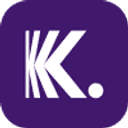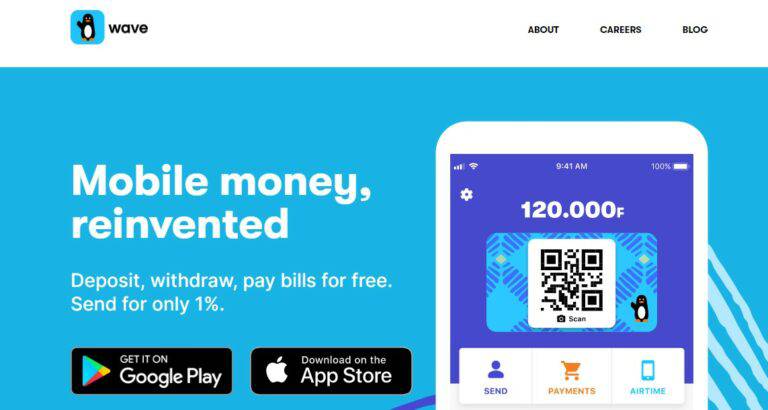
Opay
Founded Year
2018Stage
Corporate Minority | AliveTotal Raised
$570MMosaic Score The Mosaic Score is an algorithm that measures the overall financial health and market potential of private companies.
-64 points in the past 30 days
About Opay
Opay is a digital payment platform that provides financial services. The company allows fund transfers, cashback on airtime and data top-ups, and has a savings account with daily interest. Opay provides a debit card that can be used for online transactions and offers customer service support. It was founded in 2018 and is based in Lagos, Nigeria.
Loading...
Loading...
Research containing Opay
Get data-driven expert analysis from the CB Insights Intelligence Unit.
CB Insights Intelligence Analysts have mentioned Opay in 1 CB Insights research brief, most recently on Jul 8, 2022.
Expert Collections containing Opay
Expert Collections are analyst-curated lists that highlight the companies you need to know in the most important technology spaces.
Opay is included in 4 Expert Collections, including Unicorns- Billion Dollar Startups.
Unicorns- Billion Dollar Startups
1,270 items
Payments
3,134 items
Companies in this collection provide technology that enables consumers and businesses to pay, collect, automate, and settle transfers of currency, both online and at the physical point-of-sale.
Fintech
13,699 items
Excludes US-based companies
Fintech 100
849 items
250 of the most promising private companies applying a mix of software and technology to transform the financial services industry.
Latest Opay News
Apr 2, 2025
Sterling Bank Disrupts Industry Norms with Free Online Transfers When the news broke out on April 1, most people thought it was an April Fools prank but Sterling Bank confirmed it was no ruse and it was effective immediately. Sterling Bank has officially introduced a zero-transfer fee policy for all local online transactions conducted through its mobile app. This bold initiative positions Sterling as the first major traditional Nigerian bank to eliminate intra-bank and inter-bank transfer charges for its digital banking customers, setting a powerful new benchmark for customer-centric, values-driven banking in the country. “We believe access to your own money shouldn’t come with a penalty,” said Obinna Ukachukwu, Growth Executive at Sterling Bank. “This is more than a financial decision—it’s about redefining banking to put customers first.” A Relief Amid Rising Banking Costs With Nigerian bank customers increasingly burdened by multiple transaction-related charges—including N10–N50 transfer fees, stamp duties, VAT, and Electronic Money Transfer Levies (EMTL)—Sterling’s decision arrives as a welcome relief. For individuals and small businesses making frequent daily transfers, the zero-fee policy could translate into significant savings. Customers who use USSD codes are typically charged ₦6.98 per transfer, while ATM users now face updated charges after the Central Bank of Nigeria’s (CBN) February 2024 review. These include: ₦100 per ₦20,000 withdrawal at another bank’s ATM (on-site). Additional ₦500 surcharge at off-site ATMs (malls, airports, etc.). Removal of the previously allowed three free ATM withdrawals per month. Amid these rising fees, Sterling’s zero-transfer fee policy stands out as a truly customer-first gesture. More Than Just a Competitive Strategy Ukachukwu emphasized that the move wasn’t designed merely as a market differentiator, but as a statement of the bank’s core values: “We’re not yet the biggest bank in Nigeria, but we’ve been the boldest. Sterling fearlessly believes in the future of Nigeria, and this is us backing Nigerians with more than words.” Sterling has a history of taking principled stands. During the COVID-19 pandemic, it notably supported public healthcare workers with supplementary payments when few others did. The latest move further reinforces its reputation as a values-led, socially responsible financial institution. Public Response and Industry Implications Social media and online communities erupted in excitement following the announcement. Viral messages spread rapidly across WhatsApp, with users applauding the policy as “a blessing,” and calling on other banks to follow suit. Industry watchers believe the move may pressure Sterling’s competitors to rethink their pricing models, particularly in a market where digital adoption is growing and customer loyalty hinges on transparency, affordability, and innovation. History of Zero-fee transfers Many digital banks in Nigeria have been offering zero-fee or reduced-fee transfers for a while, well before Sterling Bank’s recent announcement. This was part of their entry strategy into the Nigerian Financial ecosystem and a key part of their value proposition to attract customers who are digitally savvy and cost-conscious. For example: Kuda offered a set number of free transfers per month (e.g., 25–30), then introduced small fees afterward. Opay and PalmPay offered completely free transfers and often ran promos to encourage usage. However several digital banks in Nigeria have adjusted their transfer fee policies in recent times: OPay: As of September 9, 2024, OPay implemented a ₦50 fee on electronic transfers of ₦10,000 and above. This change aligns with the Federal Inland Revenue Service (FIRS) regulations concerning the Electronic Money Transfer Levy (EMTL), which mandates a ₦50 levy on such transactions. OPay clarified that this fee is directed entirely to the federal government and not retained by the company. Moniepoint: Similarly, Moniepoint introduced the same ₦50 fee for electronic transfers exceeding ₦10,000, effective from September 9, 2024, in compliance with the EMTL regulations. Kuda Bank: Kuda offers customers 25 free transfers to other banks each month. After utilizing these free transfers, subsequent transfers to other banks incur a fee of ₦10 per transaction. Transfers between Kuda accounts remain free. It’s important to note that these adjustments were primarily in response to regulatory requirements, such as the EMTL, rather than independent decisions by the digital banks. Traditional banks have also been subject to similar levies and fees as mandated by regulatory authorities. A Step Toward Ethical Banking Sterling’s zero-fee policy is part of a larger vision to promote ethical, transparent, and inclusive banking at scale. As inflation continues to challenge everyday Nigerians and operating costs rise, Sterling’s decision not only demonstrates leadership—but also trust in the long-term value of putting customers first. As Obinna Ukachukwu aptly put it: “We’re proud to lead this change. We hope it inspires others to think differently about what customers truly need—not just in services, but in values.” Could this be the tipping point that transforms Nigeria’s digital banking landscape? Time will tell. But one thing is clear—Sterling Bank has boldly taken the first step. Related
Opay Frequently Asked Questions (FAQ)
When was Opay founded?
Opay was founded in 2018.
Where is Opay's headquarters?
Opay's headquarters is located at Alexander House, Plot 9, Dr.Nurudeen Olowopopo Avenue, Alausa, Lagos.
What is Opay's latest funding round?
Opay's latest funding round is Corporate Minority.
How much did Opay raise?
Opay raised a total of $570M.
Who are the investors of Opay?
Investors of Opay include Opera, Source Code Capital, HongShan, Redpoint Ventures China, Longzhu Capital and 10 more.
Who are Opay's competitors?
Competitors of Opay include Apenia, Nomba, Chipper Cash, PalmPay, OjirehPrime and 7 more.
Loading...
Compare Opay to Competitors

Kuda operates in the financial services sector. The company offers a range of services, including money transfers, savings and investment options, and credit facilities such as overdrafts and term loans. Kuda primarily serves individuals and businesses, providing solutions for personal finance management and business operations. Kuda was formerly known as Kudimoney Bank. It was founded in 2018 and is based in Lagos, Nigeria.

Interswitch is a company that operates in the electronic payment and digital commerce solutions sector. The company provides services including payment processing and transaction switching, as well as digital payment products for individuals, SMEs, and large corporations. Interswitch's solutions are used across different industries to facilitate transactions and business operations. It was founded in 2002 and is based in Lagos, Nigeria.

Moniepoint is a financial technology company that provides digital financial services for businesses. The company's services include payment solutions, banking services, credit provision, and business management tools that assist in financial transactions and operations. Moniepoint was formerly known as TeamApt. It was founded in 2015 and is based in Lagos, Nigeria.
Mono is an open banking platform that specializes in providing financial data access and payment solutions. The company offers services such as financial account linking, bank statement collection, and direct bank payment processing, designed to facilitate seamless financial transactions and data management for businesses. Mono primarily serves businesses in the financial technology sector, enabling them to access and manage customer financial data and execute payments. It was founded in 2020 and is based in Lagos, Nigeria.

PalmPay develops a secure, digital payment experience in an effort to promote financial inclusion and enhance consumer experiences. The company improves its users' digital payment experiences by offering financial account creation, money transfers, bill payments, and instant access to credit services. It was founded in 2019 and is based in Lagos, Nigeria.
Kuva is a digital wallet company that provides payment solutions across multiple currencies. The company offers a platform for sending and receiving money, facilitating cross-border payments, and enabling multi-currency transactions. Kuva's services are available for individuals and businesses. It was founded in 2018 and is based in Harare, Zimbabwe.
Loading...

